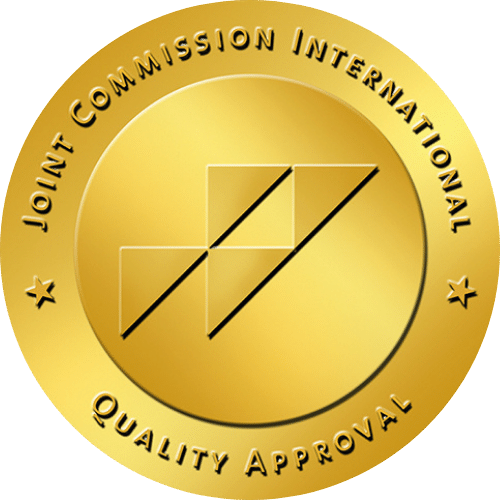4 min read
Aging is inevitable—but significant memory loss doesn’t have to be. Understanding how to reverse memory loss in the elderly can empower families and seniors to take actionable steps toward better brain health. This guide offers a comprehensive look at why memory changes occur, and more importantly, what you can do to improve memory and preserve cognitive function for longer.
Let’s explore effective, research-supported strategies to help reverse memory loss in the elderly, enhance brain performance, and promote mental well-being.

What Causes Memory Loss in the Elderly?
To understand how to reverse memory loss in the elderly, it’s essential to identify its root causes. While aging alone brings natural changes to the brain, not all memory issues are due to age. Here’s a breakdown of the most common causes:
- 1. Normal Aging
- Mild forgetfulness—like misplacing keys or forgetting names—is typical. However, frequent or worsening memory issues may suggest deeper concerns.
- 2. Alzheimer’s Disease
- A progressive condition that damages memory and cognitive function. Early detection and lifestyle changes may help improve memory and slow symptoms.
- 3. Other Forms of Dementia
- Conditions like vascular dementia or Lewy body dementia can cause significant memory decline. Managing vascular risk factors is key to slowing the effects.
- 4. Chronic Medical Conditions
- Heart disease, high blood pressure, and diabetes can reduce blood flow to the brain, increasing memory risk.
- 5. Mental Health Issues
- Depression and anxiety in seniors often mimic memory loss. These are treatable causes, and addressing them can reverse memory loss in the elderly effectively.
Signs You May Need to Reverse Memory Loss in the Elderly
It’s important to understand the difference between normal age-related memory changes and more serious cognitive decline. Identifying early warning signs is vital in planning how to improve memory in older adults:
- Frequent forgetfulness: Forgetting names, appointments, or daily tasks occasionally is normal, but when it becomes frequent, it may be a sign of memory problems.
- Repetitive behavior: Asking the same questions or repeating the same stories can indicate a memory issue, particularly when it occurs regularly.
- Misplacing items: Losing everyday items, like keys or glasses, is common. However, when items are lost and forgotten about frequently, it might be time to seek advice.
- Difficulty following conversations: Seniors may struggle to keep up with conversations or forget details that were previously clear.
- Mood changes: Sudden shifts in mood, such as increased confusion or anxiety, are common in those experiencing memory loss.
Can You Actually Reverse Memory Loss in the Elderly?
Yes—depending on the cause. Reversible memory loss may result from treatable conditions like:
- Vitamin deficiencies
- Depression
- Sleep disturbances
- Medication side effects
- Poor diet or hydration
While degenerative diseases like Alzheimer’s aren’t fully reversible, the right strategies can delay their progression. Let’s look at ways you can improve memory and boost brain health.
Lifestyle Tips to Reverse Memory Loss in the Elderly
Improving memory isn’t just about performing exercises or taking supplements—it’s about a comprehensive approach to brain health. Making the following lifestyle changes can have a profound impact on your cognitive function:
1. Exercise Regularly
Physical activity enhances blood flow to the brain and supports neuron health. Activities like walking, tai chi, and water aerobics are ideal.
Try this: 30 minutes of moderate exercise, five days a week, can help reverse memory loss in the elderly.
2. Prioritize Brain Workouts
Mental stimulation helps form new neural connections. Encourage:
- Puzzles and strategy games
- Learning a new language
- Reading challenging books
These activities strengthen cognition and improve memory in seniors.
3. Build Social Connections
Loneliness is a major contributor to cognitive decline. Social interaction helps:
- Reduce stress
- Improve emotional well-being
- Stimulate the brain
Seniors who stay socially active often see slower memory loss progression.
4. Improve Sleep Hygiene
Lack of quality sleep impacts memory consolidation. Ensure:
- 7–9 hours of sleep each night
- Consistent sleep-wake times
- A quiet, cool sleeping environment
Better sleep is essential to reverse memory loss in the elderly.
Nutrition Tips to Improve Memory in Older Adults
A healthy diet plays a significant role in supporting brain health and improving memory. Certain nutrients are particularly important for maintaining cognitive function in seniors:
1. Omega-3 Fatty Acids
Omega-3 fatty acids, found in fatty fish (such as salmon), flaxseeds, and walnuts, are crucial for brain health. They help reduce inflammation in the brain, improve memory, and protect against cognitive decline.
2. Antioxidants
Antioxidants help protect the brain from oxidative stress, which can damage cells and impair memory. Foods rich in vitamins C and E, as well as flavonoids found in berries, leafy greens, and colorful vegetables, are powerful for maintaining cognitive health.
3. B Vitamins
Vitamin B12 and folic acid are essential for memory function. Deficiency in these vitamins can lead to memory problems, confusion, and even mood disorders. Seniors should ensure they are consuming sufficient B12-rich foods like eggs, meat, and dairy products or consider supplementation.
4. Vitamin D
Vitamin D deficiency has been linked to memory loss and cognitive decline. Adequate sunlight exposure or vitamin D supplements can help improve cognitive function, especially in older adults who may not get enough from their diet or sun exposure.
How to Reverse Memory Loss in the Elderly Through Medical Management
Sometimes memory loss is linked to other health issues. Managing chronic conditions is vital.
1. High Blood Pressure
Can damage brain blood vessels. Use medications and lifestyle changes to control it.
2. Diabetes
Poor glucose control is tied to cognitive decline. Regular monitoring and dietary changes can improve memory.
3. Cardiovascular Health
Healthy circulation ensures brain cells receive the oxygen they need. Cardio exercise, low-sodium diets, and smoking cessation can help.
When to Seek Help: Memory Loss in the Elderly
If memory problems begin to affect daily life or worsen suddenly, consult a neurologist. Our neurology clinic in Miami offers comprehensive memory testing and brain evaluations to determine whether symptoms are reversible or linked to deeper conditions.
At Neurology Mobile, we use advanced diagnostic tools and personalized treatment plans to help you or your loved one understand how to reverse memory loss in the elderly effectively.
FAQs About Reversing Memory Loss in the Elderly
Can memory loss be reversed in the elderly?
While not all memory loss is reversible, taking proactive steps can significantly improve memory and slow down cognitive decline. By adopting a healthy lifestyle—engaging in regular exercise, eating brain-boosting foods, managing chronic conditions, and staying socially active—you can reduce the risk of memory loss and even reverse early stages of cognitive decline. If symptoms persist or worsen, seeking professional help from a specialist can provide the right diagnosis and treatment options.
By focusing on brain health and taking care of the mental, physical, and emotional aspects of well-being, seniors can improve their memory, reduce the effects of aging, and enjoy a higher quality of life.
Causes of Memory Loss in the Elderly and Tips for Reversal
|
Cause |
Tips for Reversal |
|
Normal aging |
Engage in physical and mental exercises, sleep well, and eat a balanced diet rich in antioxidants. |
|
Alzheimer’s disease |
Early diagnosis, medication, and cognitive therapies can help manage symptoms and slow progression. |
|
Vascular dementia |
Manage blood pressure, maintain heart health, and control cholesterol levels to improve brain circulation. |
|
Chronic health conditions |
Regular check-ups, medication adherence, and healthy lifestyle choices can reduce the risk of cognitive decline. |
|
Depression |
Seek counseling or therapy, engage in physical activity, and foster social connections to reduce isolation. |
Incorporating these strategies into daily life can significantly improve memory in the elderly and slow down the effects of age-related cognitive decline.
Frequently Asked Questions (FAQs) on Memory Loss and Reversal in the Elderly
1. Is it normal for a 90-year-old to be forgetful?
Yes, some degree of forgetfulness is common as we age, including at 90 years old. Age-related memory changes, such as forgetting names or misplacing items occasionally, are usually part of the normal aging process. However, significant memory loss or confusion that interferes with daily life may indicate more serious issues, such as Alzheimer’s disease or other types of dementia. If the forgetfulness becomes frequent or severe, it’s essential to consult a doctor to rule out underlying conditions. Early diagnosis and intervention can help slow progression and improve quality of life.
2. What is the difference between memory loss and forgetfulness?
Forgetfulness is a normal part of aging, where people occasionally forget names, appointments, or small details. It’s usually not disruptive to daily life and can be due to distractions, stress, or lack of sleep. Memory loss, on the other hand, refers to more persistent and severe forgetfulness that affects a person’s ability to function. It can include forgetting important information like the names of close family members, getting lost in familiar places, or struggling to complete daily tasks. Memory loss may be a sign of cognitive decline or dementia, requiring medical attention and assessment.
3. How do you help someone who is losing their memory?
Supporting someone who is losing their memory involves a combination of emotional, practical, and medical assistance. Encourage them to engage in mental exercises such as puzzles or memory games to keep their brain active. Create a structured routine to help them remember daily tasks and use reminders (e.g., calendars or alarms). Providing a healthy diet rich in brain-boosting nutrients, encouraging physical exercise, and ensuring they get enough sleep are also essential steps. Social engagement is equally important—spending time together can help improve cognitive function and reduce feelings of isolation. If memory loss is significant or worsens, it’s vital to seek advice from a healthcare provider to explore potential treatments or therapies.
4. Can memory loss be reversed in the elderly?
In some cases, memory loss in the elderly can be reversed, especially if it’s related to treatable conditions like sleep disturbances, depression, or nutrient deficiencies. However, more severe forms of memory loss, such as those caused by Alzheimer’s disease or vascular dementia, may not be completely reversible. That said, interventions such as cognitive therapies, medications, and lifestyle changes—including physical exercise, mental stimulation, and healthy eating—can slow down progression and improve memory function. Early intervention is crucial for better outcomes.
5. What are the best lifestyle changes to improve memory in the elderly?
The best lifestyle changes to improve memory in the elderly include regular physical activity, which boosts brain circulation and promotes cognitive health. Engaging in mental exercises, such as reading, puzzles, and learning new skills, helps keep the brain active. A brain-healthy diet rich in omega-3 fatty acids, antioxidants, and B vitamins can support memory and overall brain health. Social interaction is equally important—engaging with others can help prevent isolation, which is linked to cognitive decline. Ensuring good sleep hygiene and managing chronic conditions like high blood pressure and diabetes also play a vital role in maintaining memory and brain function.

